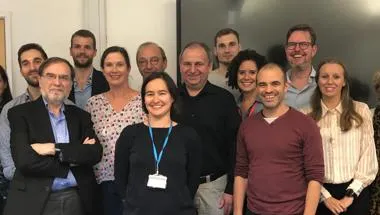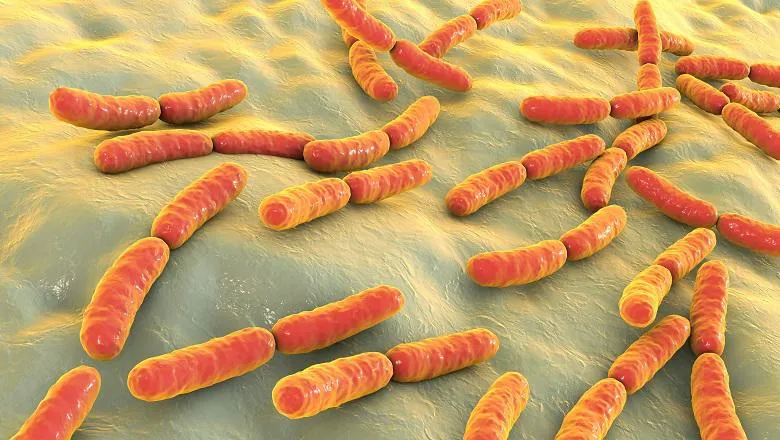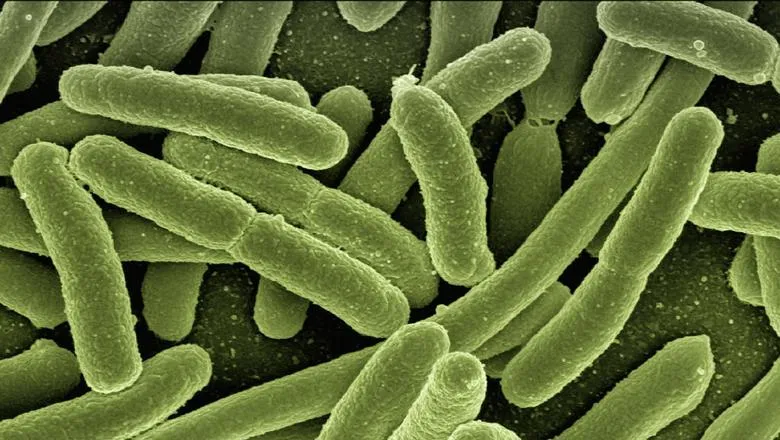
Professor Jordana Bell
Professor in Epigenomics
Research interests
- Twin Research
Contact details
Biography
Professor Jordana Bell leads the epigenomics research group at the Department of Twin Research and Genetic Epidemiology at King's College London. Her research explores the (epi)genomic basis of complex diseases in human populations, focusing on intermediate phenotypes including epigenomic and gut microbiome variation. The broad aim is to apply computational approaches to characterise the biological processes underlying human ageing and age-related cardio-metabolic disease risk, onset, and progression.
Jordana completed her doctoral studies on genetic interactions in human complex traits at the University of Oxford. She was subsequently a Wellcome Trust funded fellow at the Universities of Chicago and Oxford, where her work shifted towards human epigenomics.
Since joining King’s in 2012 Jordana has established a research programme in human population epigenomics and is currently leading research efforts across UK and international collaborative projects, including within DIMENSION, ESSN, GoDMC, and CHARGE consortia. Jordana’s primary research focus is to understand the processes shaping epigenetic variation in human populations, and its biomedical significance. Further projects explore computational approaches for integrative analyses of high-dimensional biomedical data (environmental exposures, DNA sequence, DNA methylation, metabolomics, microbiome, and phenotype) - for prediction of future disease, towards implementing stratified medicine.
Jordana is coordinator of the JPI ERA-HDHL funded DIMENSION consortium on dietary impacts on the epigenome and transcriptome in context of metabolic health.
Research

DIMENSION
DIMENSION investigates the causal impacts of dietary intake on epigenetic regulation of gene function, and their impact on subsequent cardio-metabolic health outcomes.

Centre for Ageing Resilience In a Changing Environment - CARICE
Welcome to the Centre for Ageing Resilience in a Changing Environment: CARICE

Safe and sustainable diets for a healthy body and mind (SSuDs)
This Research Interest Group on Safe and Sustainable Diets for a Healthy Body And Mind provides a unique opportunity for the King’s research community to address the challenges of safe and sustainable diets across a range of health outcomes

Statistical and Computational Genetics and Genomics (SCGG) RIG
The SCGG Group brings together researchers at King’s who are developing and working with innovative quantitative and computational approaches for genomic discovery and its impact on human health.
News
Two teams awarded Cancer Grand Challenges £20m funding
Two teams from King’s have been awarded funding to take on some of cancer’s toughest challenges.

FoLSM researchers featured in 2023 Highly Cited Researcher List
Academics from the Faculty of Life Sciences & Medicine have been named on the annual Highly Cited Researcher 2023 list from Clarivate

£2million awarded to study bacterial methylation of the human gut microbiome
A new project to investigate the bacterial methylation of the human gut microbiota has received £2million in funding by the European Research Council.

Study explores how belly fat increases risk of metabolic disease
Researchers examined how an accumulation of belly fat affects the human body at molecular level.

Major international study reports the impact of genetics on epigenetic factors
Understanding what causes epigenetic variation could be a step closer thanks a new atlas of genetic effects on epigenetic factors.

Study suggests bacteria in the gut has a greater influence on body fat compared to diet
Research shows that the gut microbiota affects a person’s visceral fat mass regardless of dietary intake.

Events

Inaugural Lectures: Professors Jordana Bell & Sarah Berry
Inspiring talks from two of our new professors about their work, their specialisations, and their journeys to where they are today.
Please note: this event has passed.

Genetic and environmental impacts on the human methylome: towards improvement of cardio-metabolic health
Seminar with Dr Jordana Bell
Please note: this event has passed.
Research

DIMENSION
DIMENSION investigates the causal impacts of dietary intake on epigenetic regulation of gene function, and their impact on subsequent cardio-metabolic health outcomes.

Centre for Ageing Resilience In a Changing Environment - CARICE
Welcome to the Centre for Ageing Resilience in a Changing Environment: CARICE

Safe and sustainable diets for a healthy body and mind (SSuDs)
This Research Interest Group on Safe and Sustainable Diets for a Healthy Body And Mind provides a unique opportunity for the King’s research community to address the challenges of safe and sustainable diets across a range of health outcomes

Statistical and Computational Genetics and Genomics (SCGG) RIG
The SCGG Group brings together researchers at King’s who are developing and working with innovative quantitative and computational approaches for genomic discovery and its impact on human health.
News
Two teams awarded Cancer Grand Challenges £20m funding
Two teams from King’s have been awarded funding to take on some of cancer’s toughest challenges.

FoLSM researchers featured in 2023 Highly Cited Researcher List
Academics from the Faculty of Life Sciences & Medicine have been named on the annual Highly Cited Researcher 2023 list from Clarivate

£2million awarded to study bacterial methylation of the human gut microbiome
A new project to investigate the bacterial methylation of the human gut microbiota has received £2million in funding by the European Research Council.

Study explores how belly fat increases risk of metabolic disease
Researchers examined how an accumulation of belly fat affects the human body at molecular level.

Major international study reports the impact of genetics on epigenetic factors
Understanding what causes epigenetic variation could be a step closer thanks a new atlas of genetic effects on epigenetic factors.

Study suggests bacteria in the gut has a greater influence on body fat compared to diet
Research shows that the gut microbiota affects a person’s visceral fat mass regardless of dietary intake.

Events

Inaugural Lectures: Professors Jordana Bell & Sarah Berry
Inspiring talks from two of our new professors about their work, their specialisations, and their journeys to where they are today.
Please note: this event has passed.

Genetic and environmental impacts on the human methylome: towards improvement of cardio-metabolic health
Seminar with Dr Jordana Bell
Please note: this event has passed.
